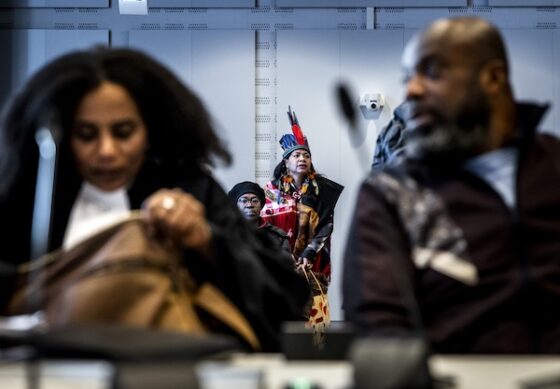Court clears way for slavery apology next week, despite chaos


The Dutch government cannot be forbidden from apologising for slavery on December 19 on legal grounds, a court in The Hague has ruled.
Since news leaked in November of a planned apology, there has been protest from groups representing former colonies and descendants of enslaved people about what they believe is a ‘chaotic’ process and choice of date.
A group of organisations brought summary proceedings against the government on Thursday, arguing that an apology should be made on July 1, the official slavery remembrance day. They argued that the state was breaching its duty to act carefully, and causing even more pain for people with a painful history.
‘July 1 is a holy day for the descendants,’ said initiator of the case and chair of Amsterdam South-East district Hannah Belliot in court. ‘It is our 4th and 5th May [remembrance day]. You don’t just change that, and certainly you don’t do it without agreement. It is uncivilised to decide this in a one-sided, dominant way.’
The court case was brought by six groups campaigning for equal rights, recognition and reparation for the slavery past, and around 50 people attended the case including a spiritual leader and community ‘king’ in ceremonial dress.
They argued that the government should wait for the preliminary results of a national investigation into the state’s involvement in slavery, while consulting groups broadly on how an apology should be worded and future action to combat inequality and racism. Some believe an apology should be spoken by the Dutch king.
Cabinet
In the court case Reimer Veldhuis, representing the state, said that the final decision would be made on the apologies in a Friday morning cabinet meeting. ‘The government is extremely conscious of the deep feelings that slavery, as part of our shared history, brings up in people who have for generations carried the pain of a system that so affected human dignity,’ he said.
However, he argued that the state had done a lot to consult various different groups at home and abroad.
In an unusual decision to rule immediately, the judge dismissed the plantiffs’ case, saying their legal argument didn’t hold that the government was breaching public order and the principles of proper governance.
‘The core question is whether the duty of careful governance has been breached,’ he said. ‘But this is the problem. This is about an ethical question…This means there is no recourse to civilian law to decide the way, the manner and where the state follows up on and gives form to its moral obligation. As a judge, I cannot be involved in political questions.’
Anger
When the verdict was announced, the court room broke out in angry cries against ‘racism’ and ‘colonialism’, and shouting that ‘the apologies will not be accepted’.
One woman dressed in ceremonial costume and a feathered headdress, who said she was a spiritual leader of the native descendants of Suriname, told Dutch News: ‘This is a racist state. They have learned nothing in their highest house.’
Joancy Breeveld, lawyer for the plaintiffs, said that they would appeal the court decision, but also called on the Dutch government to think again.
‘I am extremely disappointed,’ she said after the verdict. ‘We did hope that this situation would be ruled upon by the judge, but he says it is a political question that he will not get involved in. This is regrettable. The judge will not sit in Rutte’s chair.
‘But it will be a black day if an apology is offered on December 19th in this way – where there is no sense of emancipation and equality, and to people who experience racism every day. As has been said in the parliament, it is chaotic. I hope the prime minister and cabinet take the decision not to make an apology on 19th because people won’t accept it, it won’t come from the heart, and an apology that isn’t accepted is worthless.’
The court in the Hague ruled that costs should be paid by the plaintiffs. A written verdict will follow.
Thank you for donating to DutchNews.nl.
We could not provide the Dutch News service, and keep it free of charge, without the generous support of our readers. Your donations allow us to report on issues you tell us matter, and provide you with a summary of the most important Dutch news each day.
Make a donation